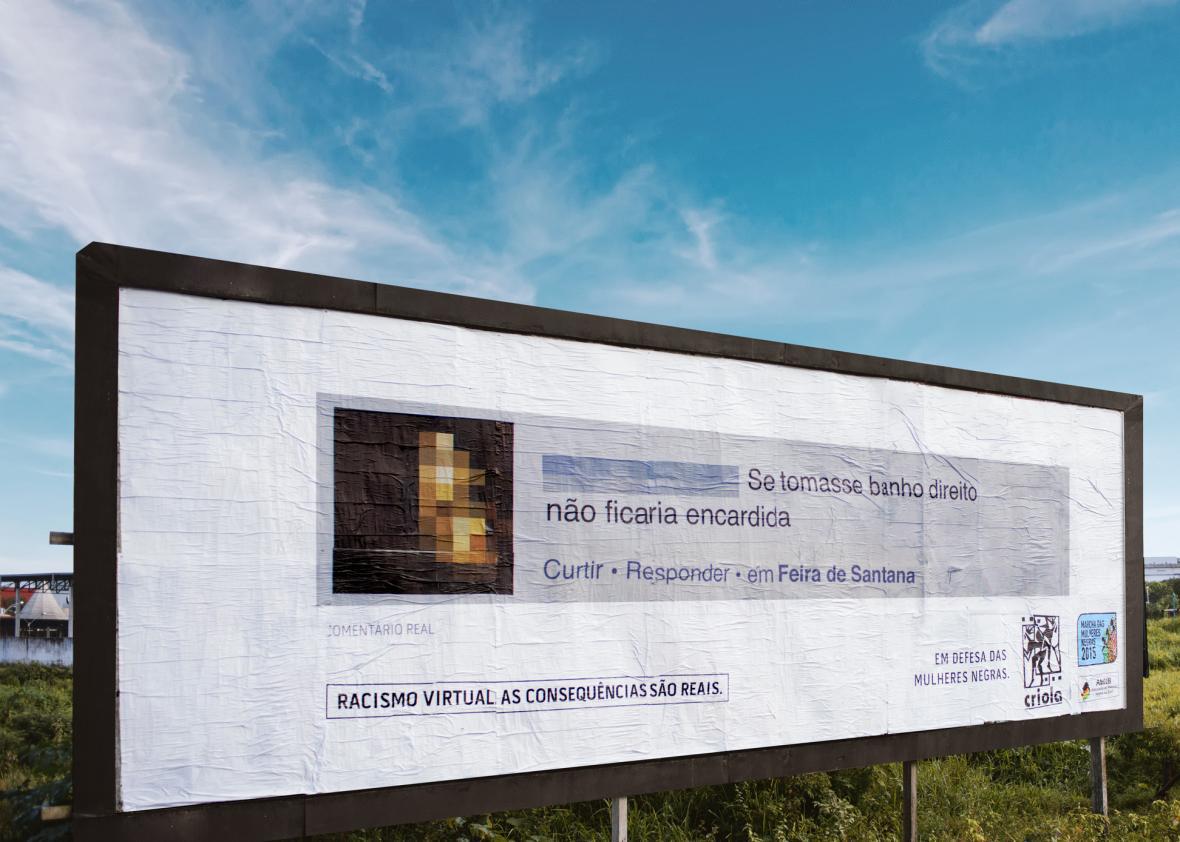Holding racist trolls accountable for online harassment is nearly impossible. But that’s not stopping a clever Brazilian campaign from shaming them. Criola, a civil rights advocacy group run by Afro-Brazilian women, is using geolocation tools to put hateful Facebook or Twitter posts on billboards where the commenters live in cities around the country.
Called “Virtual Racism, Real Consequences,” the project’s main motivation isn’t to publically out the commenters (their names and photos are pixelated) but to send a message that online bigotry has an impact on the physical world. Criola’s founder Jurema Werneck told the BBC: “Those people [who post abuse online] think they can sit in the comfort of their homes and do whatever they want on the internet. We don’t let that happen. They can’t hide from us, we will find them.”
Launched in the summer, the campaign was sparked by racist remarks made against Afro-Brazilian meteorologist Maria Júlia Coutinho on her news outlet’s Facebook page. Several of the campaign’s billboard comments are taken from that thread, which garnered nearly 20,000 comments and 46,000 likes since it posted in July. While you can go to jail for racist hate speech in Brazil, it’s rarely enforced, according to the Economist. One Facebook user on the thread pledged to report it anyway: “I just printed of all the comments on this post and I will report them to the appropriate authorities. Racism is a crime.”
The BBC points out that Brazilians who identify as black or Afro-Brazilian make up about 8 percent of the population, and mixed-race or “pardo” Brazilians make up about 43 percent, according to the country’s 2010 census. Werneck, who identifies as Afro-Brazilian, hopes that calling attention to the country’s long and complex history with racism will help cultivate a stronger black pride movement.
After Criola put up the billboards in cities such as Americana, São Paulo, and Porto Alegre, Rio Grande do Sul, the group went around and asked people whether a racist comment online causes less damage than saying it in person. Most people agreed: Internet comments are no less upsetting than direct racist offenses. The first interviewee said (roughly translated from Portuguese): “This is unbelievable. These people should go to prison for these comments. The sign reminds us that racism still exists, and sometimes we don’t even realize it.”
Other people denounced the bigoted comments, expressed disgust, and said that many Brazilians are ignorant of the country’s problem with racism. At minute mark 2:43, an Afro-Brazilian man says, “Everybody is human; color doesn’t matter.”
